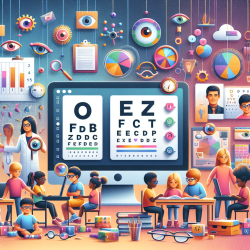Ensuring that children develop strong literacy skills is crucial for their academic success and future opportunities. The research article "Development of a Tool to Screen Risk of Literacy Delays in French-Speaking Children: PHOPHLO" presents a new tool aimed at identifying French-speaking children at risk for literacy delays. This blog will delve into the research findings and how practitioners can leverage these insights to improve outcomes for children.
Key Findings from the PHOPHLO Study
The study focused on four main oral language abilities:
- Speech Perception: The ability to distinguish between correct and incorrect pronunciations of words.
- Speech Production: The accuracy of producing consonants in spoken words.
- Phonological Awareness: The ability to recognize and manipulate sounds within words.
- Morphology Production: The ability to use grammatical morphemes correctly, particularly in the past tense.
The researchers found that these oral language skills are significant predictors of spelling abilities at the end of second grade. The PHOPHLO screening tool, which assesses these skills, demonstrated a sensitivity of 71% and a specificity of 93% in identifying children at risk for poor spelling abilities.
Implementing the PHOPHLO Screening Tool
Practitioners can utilize the PHOPHLO screening tool to identify children who may need additional support in developing their literacy skills. Here are some steps to implement this tool effectively:
- Administer the PHOPHLO Screening: Conduct the screening at the beginning of first grade to assess speech perception, speech production, phonological awareness, and morphology production.
- Analyze Results: Use the tool's scoring system to identify children who fall below the established cut-off scores in any of the four areas.
- Provide Targeted Interventions: Develop individualized intervention plans for children identified as at risk, focusing on improving their specific areas of weakness.
- Monitor Progress: Regularly reassess the children to track their progress and adjust interventions as needed.
Encouraging Further Research
While the PHOPHLO tool has shown promising results, further research is essential to validate its effectiveness across diverse populations and settings. Practitioners are encouraged to contribute to this body of research by:
- Conducting longitudinal studies to track the long-term impact of early interventions based on PHOPHLO screening results.
- Exploring the tool's applicability in different linguistic and cultural contexts.
- Investigating additional predictors of literacy outcomes to enhance the screening tool's accuracy.
By integrating data-driven tools like PHOPHLO into their practice, speech-language pathologists can make informed decisions that significantly improve literacy outcomes for children.
To read the original research paper, please follow this link: Development of a Tool to Screen Risk of Literacy Delays in French-Speaking Children: PHOPHLO










